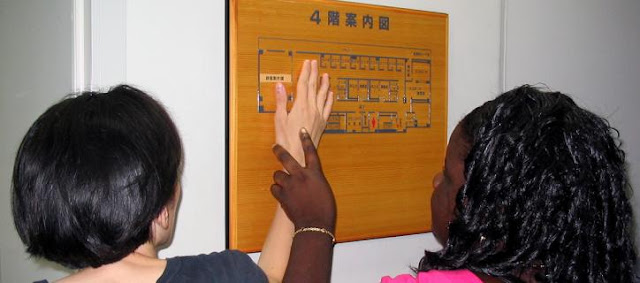Blind and Low Vision in Sugar Land, Greatwood & Richmond Area
Blindness rehabilitation is specialized training designed to teach a person who is blind or visually impaired adapted techniques to live and work in a sighted world. Whether a person is looking to return to work, maintain current employment, or attempting to maintain independence, learning these adapted techniques are essential.
Rehabilitation Counseling - A Rehabilitation Counselor for the Blind can assist a person with uncorrectable vision loss in many ways. Many of our clients tell us that their eye doctor one day informed them that their vision loss was permanent and there was nothing else they could do. While this may have been true from a medical point of view, there is much that can be done with the proper counseling and rehabilitation. A Rehabilitation Counselor for the Blind can help the individual to identify the resources available. They can also perform a comprehensive needs assessment to identify all barriers and together, they can develop a plan to overcome the obstacles one by one. While individual needs are different, some of the common components of a successful rehabilitation plan include the following:
Low Vision Evaluation – This is a specific type of eye examination performed by an optometrist who is specifically credentialed to perform low vision evaluations. They often work in conjunction with a Low Vision Therapist who takes the findings of the Low Vision Optometrist and assists the individual to identify and train on the right devices and learn proper viewing techniques to maximize remaining vision. Many people find that they can read materials again in a modified way.
Braille Instruction – Braille is a series of 6 raised dots that enables a person who is blind or with very low vision to read again with the use of their fingertips. Braille is just as relevant today as it was when it was invented by Louis Braille many years ago. Electronic devices are very handy, but they do not replace the functionality of Braille.
Vision Rehabilitation Therapy – When a person loses vision, simple everyday tasks can become very difficult to perform. These activities like shaving, applying make-up, making a phone call, using a stove safely, measuring ingredients for a favorite recipe, pouring a hot cup of coffee, using a washer and dryer and hundreds of other everyday tasks are challenging to accomplish without vision. However, with the proper training from a Vision Rehabilitation Therapist, these and most others are all able attainable
Orientation and Mobility Instruction – Learning to travel safely in your environment is also a key component to independence and employment. When a person loses their sight, it is critically important that they learn how to safely navigate their environment and stay oriented to their surroundings. With the training of an Orientation and Mobility Specialist, people who are blind or living with low vision can learn how to safely walk their neighborhood, cross streets, navigate a college campus, use the transit systems and so much more.
Assistive Work Technology Evaluation – An Assistive Work Technology evaluation is the key to opening the world of technological possibilities for people with vision loss. While technology does not remove all barriers, when combined with the skills training mentioned previously, technology can be instrumental in assisting someone to become fully independent and a productive member of society.
Technology Access Training – Technology can be very instrumental to overcoming many of the barriers encountered by a person with vision loss. Today’s technology allows a blind person to read books, use a computer, identify colors, identify denominations of money, scan bar codes to obtain product information, pay bills, and so much more. With the proper and training, vision loss can be accommodated to overcome most barriers.
Source: Blind and Low Vision



